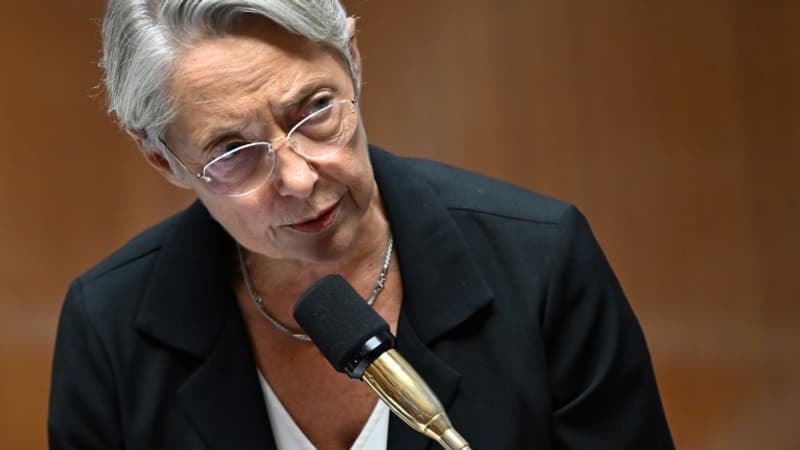The Prime Minister, Elisabeth Borne, will bring together the social partners this Monday to talk about “wages” and “professional development”, in particular, in a context of high inflation and persistent differences with the unions, still marked by the forced adoption of the pension reform. .
Around the head of Government and six ministers, seven union organizations (CFDT, CGT, FO, CFTC, CFE-CGC, Solidaires and Unsa) and six businessmen (Medef, U2P, CPME, FNSEA, Fesac and Udes) will be present for this large demonstration that takes place throughout the day at the Economic, Social and Environmental Council (Cese) in Paris.
The question of maintaining the social conference, three days after the murder of a teacher in Arras in an Islamist attack, was raised for a time by the executive before being evacuated. “We cannot give in or paralyze the country in the face of terrorism,” said Elisabeth Borne, in an interview with the Sunday Tribune.
Creation of a “Superior Remuneration Council”
However, he will pronounce “a word of contemplation” in tribute to Dominique Bernard. This will be followed by the interventions of experts, the statements of those responsible for the trade union and employers’ organizations, of three ministers (of Economy, Bruno Le Maire, of Labour, Olivier Dussopt and of Solidarity, Aurore Bergé), before the celebration of four workshops and restitution at the end of the day.
During this social conference, the last of which was held in 2014 in a context of rising unemployment, the Prime Minister must announce the creation of a “High Remuneration Council” in which the social partners, the administrations, will sit in statistics (Insee, Dares, Drees) or even experts, according to Matignon.
Another issue expected by all unions and on which the Prime Minister could advance: the “conditionality of public aid to companies”, that is, the maintenance of exemptions from contributions as long as the sector does not have a minimum lower than the salary minimum.
“Without ‘blabla'”
The social conference takes place three days after a half-hearted demonstration in defense of purchasing power, which brought together some 200,000 people in France. “The anger is extremely strong and the government must respond to the aspirations of the workers,” said Sophie Binet, general secretary of the CGT, interviewed on Friday before the parade.
“We don’t want ‘blahs’ or announcements that sound like ‘whistles’. We expect something concrete,” he warns. “The prime minister has told us that there will be announcements, we will take her at her word,” hopes the president of the first union, the CFDT, Marylise Léon. “The vital emergency today is the salary!” insists Frédéric Souillot (FO), promising to “talk about salaries from the beginning to the end.”
On the occasion of this social conference, the government also wishes to reconnect with the unions after six months of challenging the pension reform, finally adopted by 49.3. “It is a moment of dialogue with union and employer organizations,” argued Elisabeth Borne, ensuring that there is “a common will to strengthen social democracy.” Thus, the executive gave guarantees to the unions that were putting pressure on it by integrating, at the last moment, the issue of professional equality between women and men.
The drawback is that the conference is being held in a context of deep disagreement between the social partners and the Government on private complementary pension schemes (Agirc-Arrco) and unemployment insurance (Unedic). The State wants to drain them to cover the deficit of the general pension system or to complement France Travail, the new public employment service. These transfers represent a “red line” for the head of the CGT, Sophie Binet, and predict “the end of the honeymoon” with the government, according to Medef. “There was never any thought of taking money from them,” defends Elisabeth Borne, although she points out that, thanks to the pension reform, they are saving in complementary schemes.
Source: BFM TV


